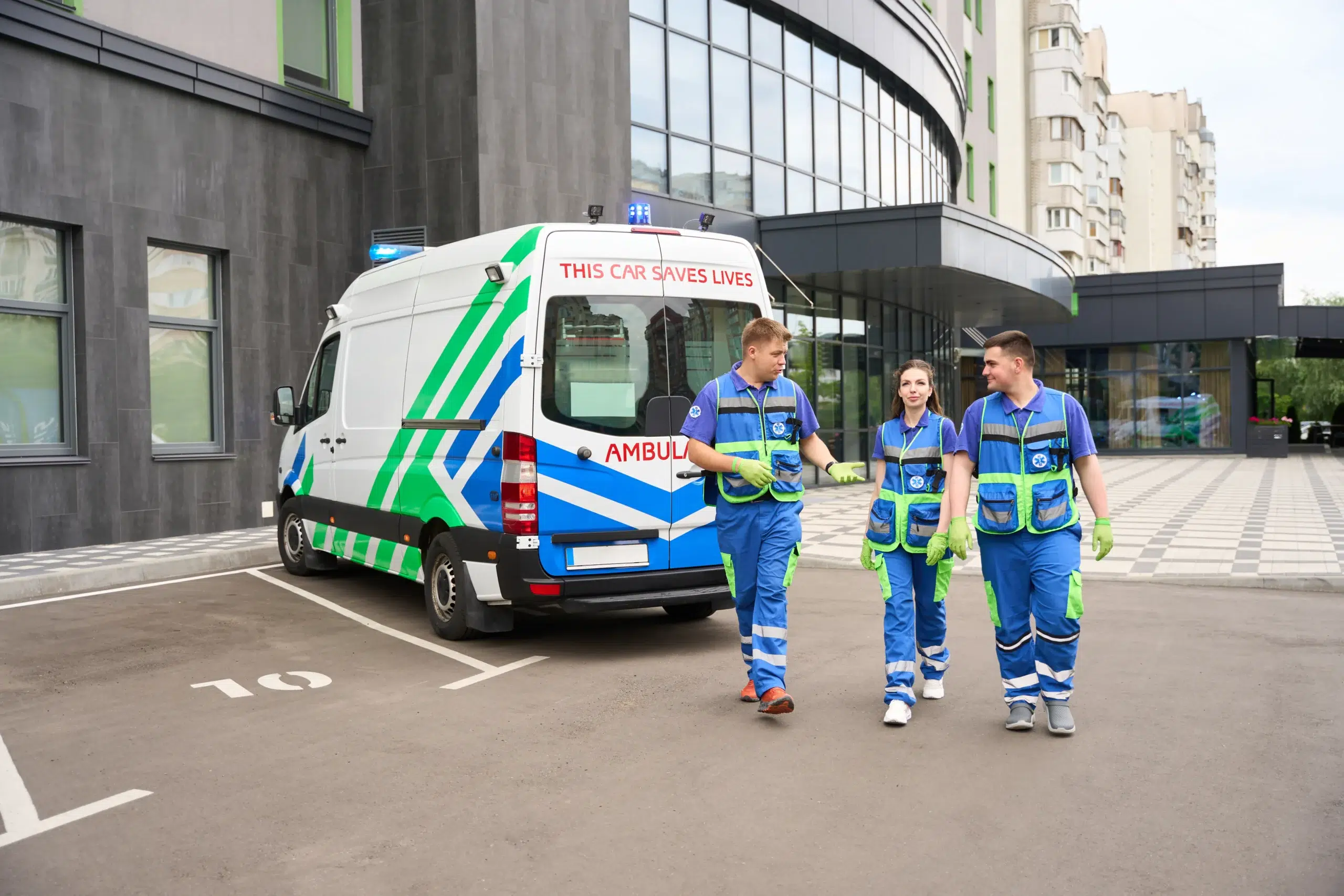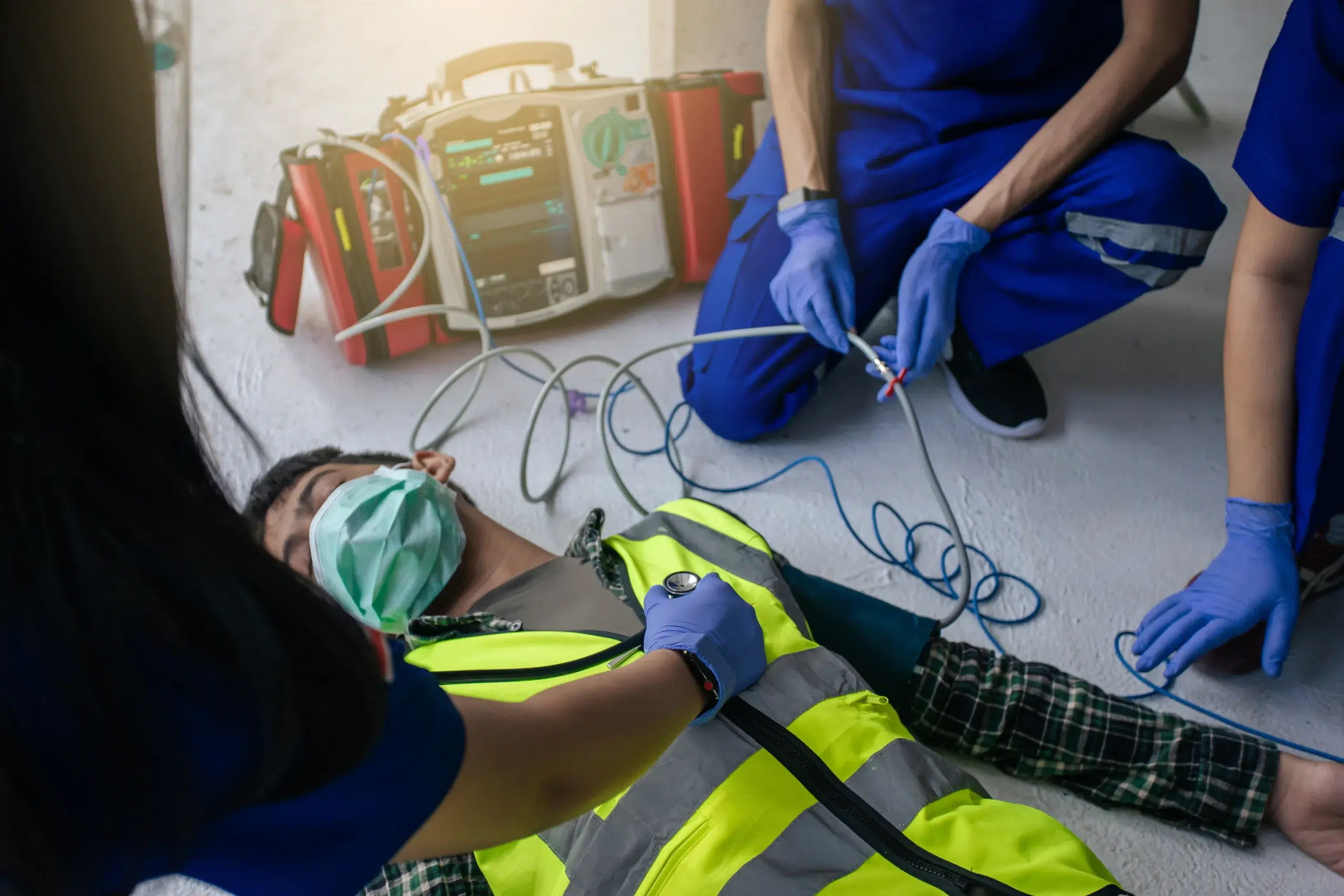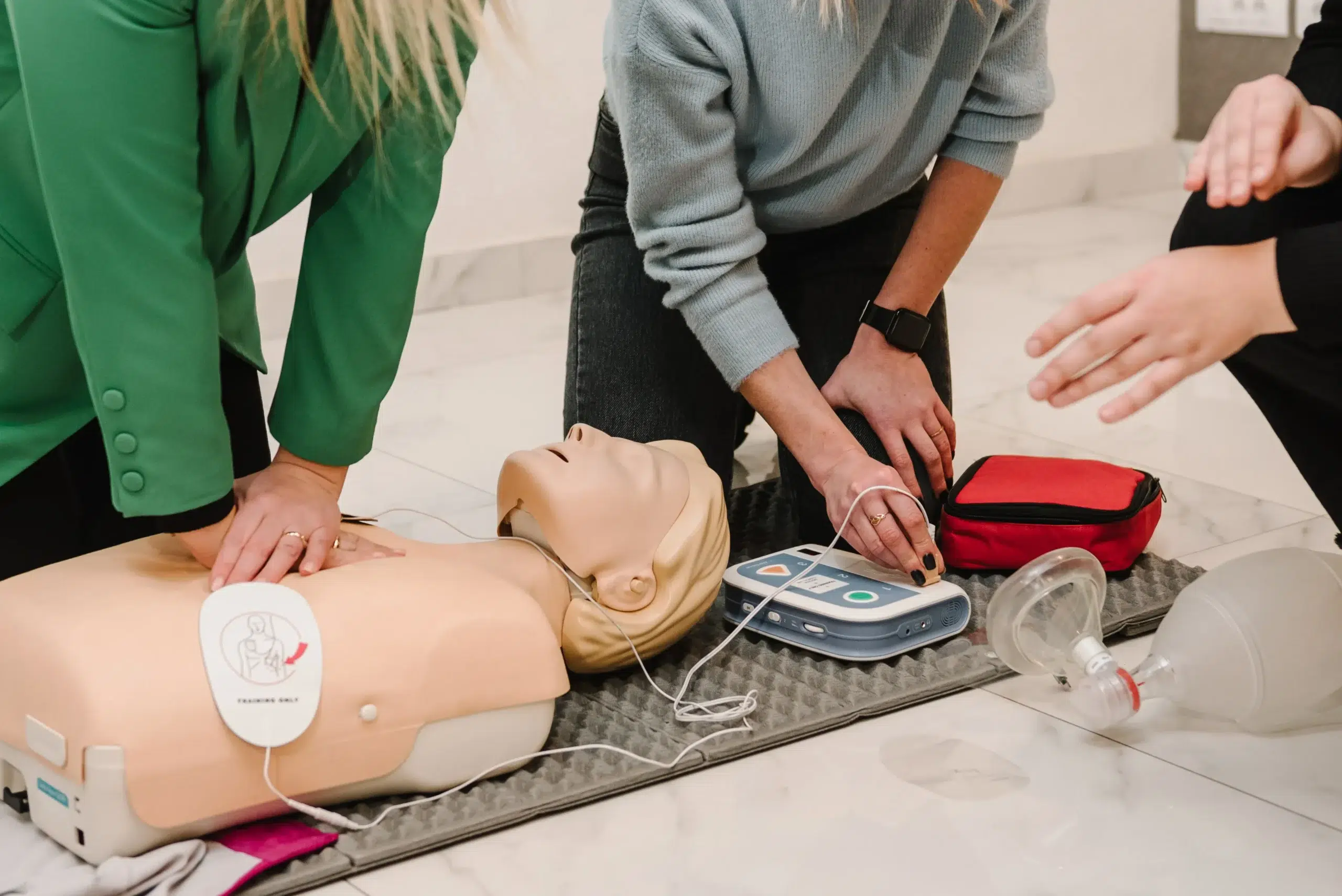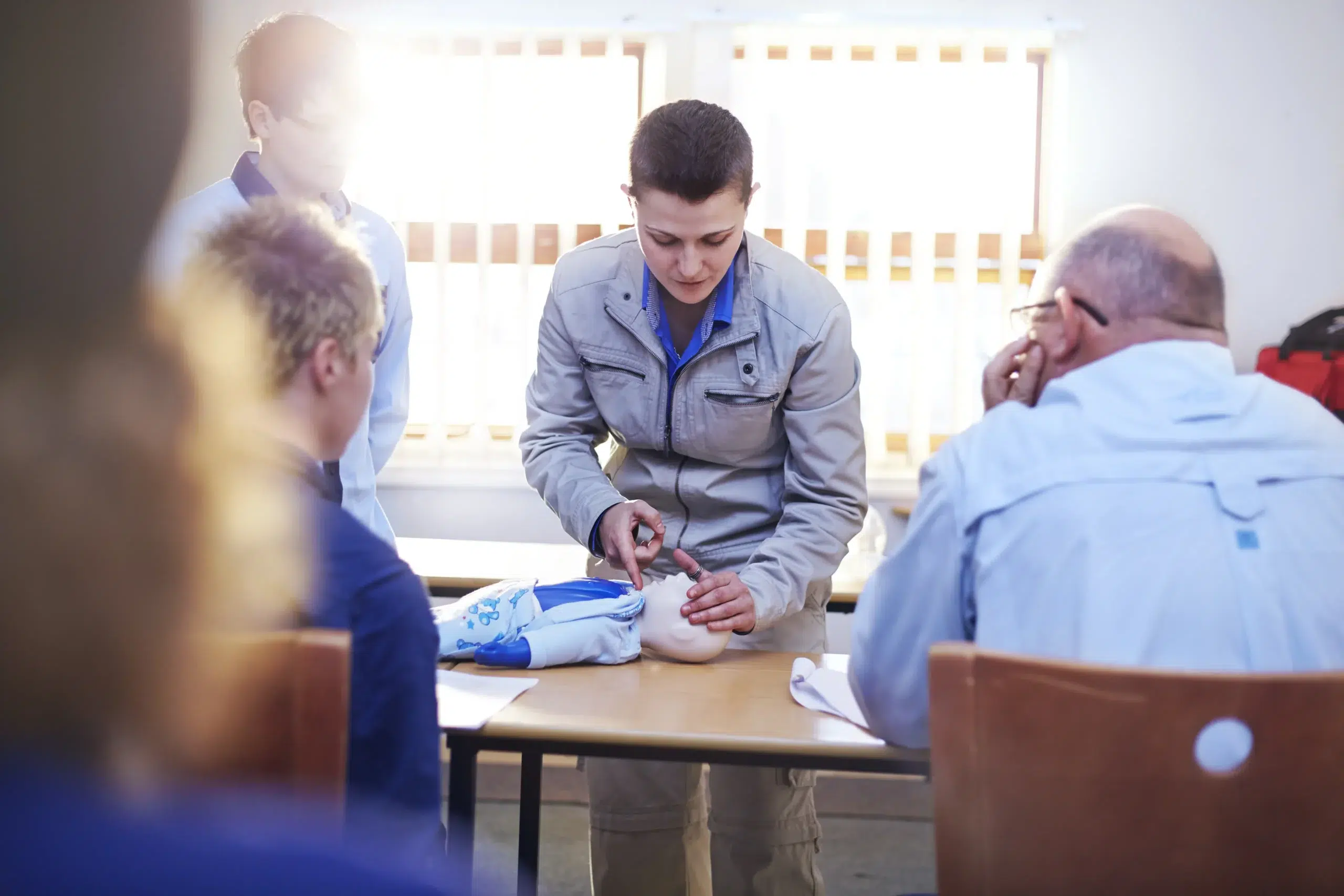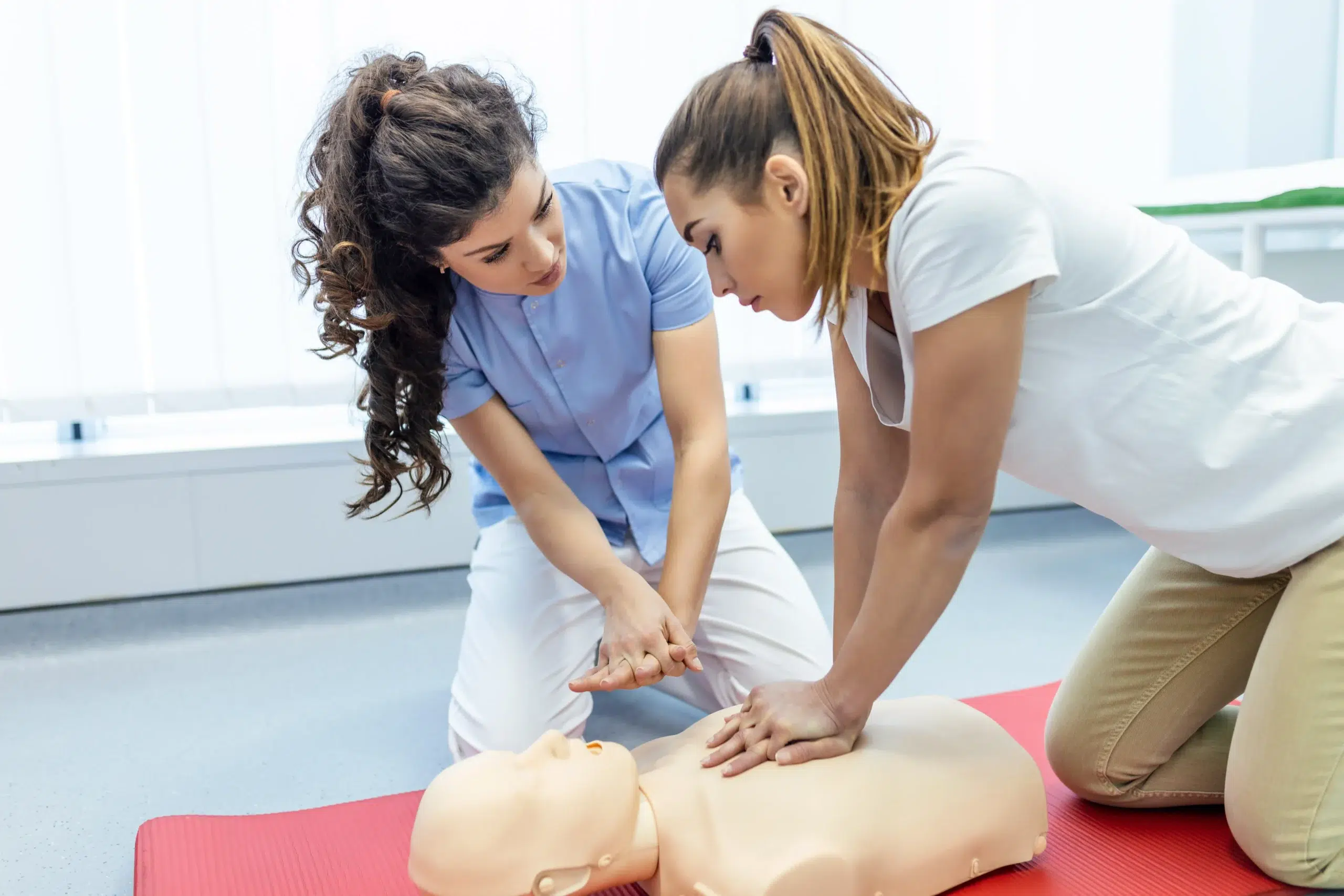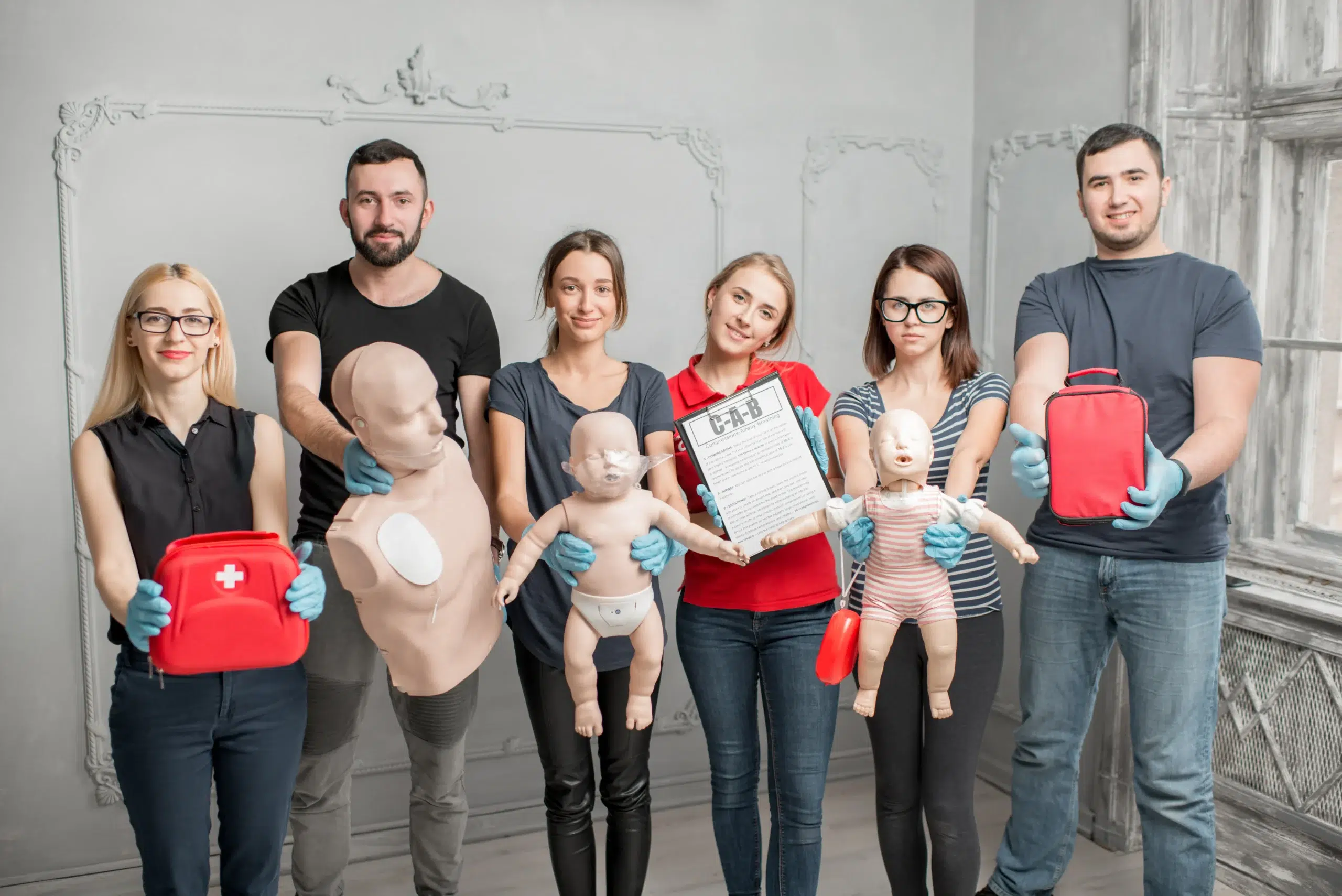Emergencies can happen anytime, anywhere, and knowing how to respond effectively can make all the difference. Basic life support (BLS) training equips you with the skills to provide immediate care during critical situations, bridging the gap until professional medical help arrives. This guide explores the importance of BLS training in Walnut Creek, highlighting the various certification courses available, their benefits, and how to choose the right program for your needs. We’ll delve into the core components of BLS, including CPR, AED use, and choking relief, and discuss how these skills can be applied in real-world emergencies. Whether you’re pursuing a career in healthcare or simply want to be prepared for any situation, this guide will provide you with valuable insights into the world of basic life support.
Key Takeaways
- BLS skills empower you in emergencies: Whether you’re a healthcare professional or a concerned citizen, BLS training equips you to provide immediate, potentially life-saving care in critical situations.
- Find the right BLS course for your lifestyle: Explore various training formats, including in-person, blended, and online options, to find a program that fits your schedule and learning preferences. Consider factors like cost, location, and instructor experience.
- Stay current with your BLS certification: Maintain your skills and confidence by renewing your certification on time and pursuing continuing education opportunities to stay up-to-date with the latest guidelines.
What is Basic Life Support (BLS)?
Basic Life Support (BLS) is a level of medical care used for victims of life-threatening illnesses or injuries until they can receive full medical care at a hospital. It can be provided by trained medical personnel, including certified first responders, paramedics, nurses, and doctors, as well as by anyone who has received BLS training. Knowing BLS can give you the confidence to act quickly and potentially save a life in critical situations.
Core Components of BLS Training
High-quality BLS training covers core skills and knowledge. These skills include recognizing life-threatening emergencies, providing chest compressions, clearing someone’s airway, and giving rescue breaths. BLS training also teaches the use of an automated external defibrillator (AED), a portable device that can check a person’s heart rhythm and deliver an electric shock to restore a normal heartbeat. Our BLS certification course covers all these essential components, giving you a well-rounded understanding of how to respond to emergencies.
Importance of BLS in Healthcare and Emergencies
BLS is critical in healthcare settings and emergencies because it provides immediate care to those who are unconscious, not breathing, or have no pulse. These situations are often life-or-death, and the actions taken in the first few minutes can significantly impact the outcome. BLS skills bridge the gap between the onset of an emergency and the arrival of more advanced medical help. This immediate intervention can stabilize the victim and potentially save their life. For healthcare providers, BLS certification is often a job requirement, reflecting the importance of these skills in patient care.
Common BLS Misconceptions
There are some common misconceptions about BLS training. One is that it requires a huge time commitment. In reality, BLS courses are designed to be efficient and manageable, even for busy professionals. Another misconception is that BLS training is only for healthcare professionals. While it’s essential for those in the medical field, BLS skills are valuable for anyone. Parents, teachers, coaches, and community members can all benefit from knowing how to respond to medical emergencies. Find a class that fits your schedule and review our low price guarantee. Contact us to learn more about our convenient daily certification courses.
Top BLS Course Providers in Walnut Creek
Finding the right BLS course can feel overwhelming, but several reputable providers in the Walnut Creek area offer high-quality training. Here are a few options to explore:
Pleasant Hill CPR Classes
Pleasant Hill CPR Classes, conveniently located near Walnut Creek, offers a variety of American Heart Association courses, including BLS certification. They focus on equipping participants with the skills needed for effective emergency response. Their convenient daily classes and low price guarantee make them an accessible and reliable choice. For healthcare professionals seeking efficient recertification, they also specialize in RQI programs. Have questions? Contact them directly for more information.
Walnut Creek CPR Training Center
The Walnut Creek CPR Training Center offers flexible scheduling with classes seven days a week. Their courses—including BLS, ACLS, PALS, CPR, and First Aid—adhere to American Heart Association standards. This commitment to established guidelines makes them a well-respected provider in Walnut Creek. Learn more about their course offerings and schedules on their website.
Safety Training Seminars
Safety Training Seminars prioritizes community safety by offering comprehensive training in American Heart Association CPR, BLS, ACLS, PALS, and First Aid certification courses. They are a valuable resource for individuals and groups in Walnut Creek seeking certification. Find more information and reviews on their Yelp page.
American Red Cross
The American Red Cross is a trusted organization for emergency response training. Their BLS CPR classes empower individuals to respond effectively in critical situations, enhancing personal skills and contributing to workplace safety. Explore their website to learn more about their BLS training programs.
BLS Course Types and Content
Choosing the right BLS course format depends on your learning style and schedule. Here’s a breakdown of the different types of BLS training available in Walnut Creek:
In-Person Training
Traditional in-person BLS training offers a hands-on learning experience with direct interaction with an instructor. This format allows for immediate feedback and personalized guidance as you practice essential skills. In-person classes are a great option if you thrive in a structured classroom setting. Pleasant Hill CPR Classes offers this option for those who prefer a more traditional approach.
Online Certification
For medical professionals seeking a flexible and efficient path to certification, the American Heart Association’s RQI program may be a good fit. RQI uses innovative technology and short, frequent skills sessions to help healthcare providers maintain their proficiency. You can complete the cognitive portion online at your own pace and then schedule a hands-on skills evaluation.
Blended Learning
Blended learning combines online learning with in-person skills practice. These courses typically involve completing online coursework covering BLS theory, followed by an in-person session to demonstrate your skills. This format offers flexibility for busy individuals who want a shorter, more adaptable training schedule.
Skills Covered: CPR, AED Use, and Choking Relief
Regardless of the format, all BLS courses cover the same core life-saving skills: high-quality CPR for adults, children, and infants, how to use an AED, and what to do if someone is choking. You’ll also learn about teamwork and communication during emergencies. These skills are crucial for healthcare providers and can also be invaluable in everyday situations.
BLS Certification: Cost and Value
Getting BLS certified is an investment in your skills and your future. But how much does it cost, and what affects the price? Let’s break down BLS certification costs in Walnut Creek and explore how Pleasant Hill CPR Classes offers valuable training that fits your budget.
Average Course Costs
BLS certification costs in Walnut Creek, CA, vary. Expect different price points depending on the course type, the training provider, and whether you’re taking a class individually or with a group. Knowing these factors helps you compare options effectively. For example, a basic BLS renewal course will typically be less expensive than an initial certification course covering more comprehensive material.
Factors Influencing Costs
Several things influence BLS certification course costs. Course format is a major factor. In-person training often includes equipment fees and instructor costs, while online courses may have different pricing structures. The training provider also plays a role. Some organizations, like the American Red Cross, have standardized pricing, while independent providers like Pleasant Hill CPR Classes may offer more competitive rates or specialized packages. Group discounts are another common way to lower the per-person cost.
Discounts and Promotions
Many training centers offer discounts and promotions to make BLS certification more accessible. Look for early bird registration discounts, group rates, or special offers for students or healthcare professionals. Pleasant Hill CPR Classes offers daily CPR certification courses for BLS, ACLS, PALS, First Aid, and more, often with associated discounts. Checking their website or contacting them directly is the best way to find their latest promotions.
Pleasant Hill CPR Classes’ Low Price Guarantee
Pleasant Hill CPR Classes is committed to providing high-quality, affordable training. Their low price guarantee ensures you receive top-notch instruction at a competitive price, making them a smart choice for BLS certification in the Walnut Creek area. If you find a comparable course at a lower price, they’ll match it, taking the guesswork out of finding affordable, quality training.
BLS Class Schedules and Locations
Finding the right BLS class shouldn’t feel like a treasure hunt. We get it – you’re busy. That’s why convenient scheduling and accessible locations are key. Luckily, if you’re in the Walnut Creek area, several options make getting your BLS certification a breeze.
Flexible Class Times and Formats
BLS classes understand the demands of a busy schedule. Many providers offer classes daily, seven days a week. This flexibility ensures you can find a time that fits your life, whether you’re a healthcare professional working shifts or juggling family commitments. Beyond daily classes, you can often find weekend and evening options. This variety in scheduling makes BLS certification accessible to almost everyone. Pleasant Hill CPR Classes, for example, offers a range of BLS courses with flexible scheduling.
Convenient Walnut Creek Training Centers
Location is just as important as timing. You’ll find several conveniently located training centers throughout Walnut Creek and the surrounding areas, including Concord and Pleasant Hill. This eliminates lengthy commutes and makes attending class much easier. For those closer to Pleasant Hill, Pleasant Hill CPR Classes offers a convenient option with various American Heart Association courses.
On-Site Training Options
Need BLS training for your entire team? Many providers offer on-site training, bringing the class directly to your workplace. This is a great option for businesses, schools, or community groups. On-site training often comes with discounted group rates and flexible scheduling to minimize disruption to your workday. This personalized approach ensures everyone receives the same high-quality training in a familiar and comfortable environment. Check with your chosen provider about their on-site training options and tailor a program that fits your organization’s specific needs.
Benefits of BLS Certification
Getting your BLS certification is more than just checking a box; it’s an investment in yourself, your career, and your community. Whether you’re a seasoned healthcare professional or just starting out, BLS training offers a range of valuable benefits.
Advance Your Healthcare Career
BLS certification is a cornerstone for many healthcare careers. It signals to employers your dedication to patient safety and your preparedness to handle critical situations. Having a current BLS certification is often a prerequisite for healthcare jobs and can open doors to more specialized roles and responsibilities, contributing to both professional growth and increased earning potential.
Gain Confidence in Emergencies
One of the most significant benefits of BLS training is the confidence it instills. Knowing you possess the skills to potentially save a life empowers you to act decisively in emergencies. CPR training provides the knowledge and muscle memory to respond effectively, whether you’re a healthcare provider, a childcare professional, or simply someone who wants to be prepared for the unexpected. This confidence translates to quicker reactions and better outcomes in critical situations.
Meet Job Requirements
Many employers, particularly in healthcare settings, require BLS certification as a condition of employment. This requirement ensures that their staff can respond appropriately to medical emergencies, creating a safer environment for both patients and colleagues. For anyone considering a career in healthcare, understanding and meeting this requirement is crucial. Maintaining a current BLS certification demonstrates your professionalism and commitment to industry standards.
Real-World BLS Applications
BLS skills aren’t just theoretical; they have direct, real-world applications. From responding to a cardiac arrest in a hospital setting to assisting someone choking in a restaurant, BLS training equips you with the skills to make a difference in diverse situations. These skills are critical for all healthcare providers, enabling them to provide immediate and effective care during emergencies, potentially bridging the gap until more advanced medical assistance arrives.
Choose the Right BLS Course in Walnut Creek
Finding the right BLS course can feel overwhelming with so many options. But by focusing on a few key factors, you can choose a program in Walnut Creek that meets your needs and sets you up for success. Here’s what to consider:
Accreditation and Certification
First, ensure the course you choose is accredited by a recognized organization like the American Heart Association (AHA). Pleasant Hill CPR Classes offers a variety of AHA-accredited courses like BLS, ACLS, and PALS, conveniently located near Walnut Creek. This accreditation ensures your certification is widely accepted and means the course content adheres to the latest AHA guidelines. A nationally recognized certification is crucial for career advancement and demonstrates your commitment to high-quality patient care.
Instructor Qualifications
The quality of your instruction significantly impacts how well you learn life-saving techniques. Look for courses taught by experienced, certified instructors passionate about BLS education. Our instructors adhere to the AHA’s rigorous standards, ensuring your certification is recognized and respected. They should create a supportive learning environment where you feel comfortable asking questions and practicing.
Hands-On Practice
BLS is a hands-on skill, so choose a course that emphasizes practical training. Look for opportunities to practice CPR, AED use, and choking relief on mannequins and with other students. Combined CPR and First Aid courses in Walnut Creek offer a well-rounded skill set. The more you practice, the more confident and prepared you’ll feel in a real-life emergency.
Course Reviews and Success Rates
Before committing to a course, do some research. Read reviews from past students to understand their experiences. Look for programs with high success rates and positive feedback regarding instructor quality, course content, and hands-on practice. This information can offer valuable insights and help you make an informed decision. Pleasant Hill CPR Classes offers a range of CPR certifications, from basic life support for everyday emergencies to advanced training for healthcare professionals.
Maintain Your BLS Certification
Earning your BLS certification is a huge accomplishment, but staying current is essential for providing effective care in emergencies. This section covers BLS renewal, continuing education, and advanced training options like RQI.
Renewal Requirements
BLS certification generally lasts for two years. Check your certification card for the specific expiration date. Start thinking about recertification about a month before your card expires. You can enroll in a BLS recertification course, which is often shorter than the initial certification class, to refresh your knowledge and renew your skills for another two years.
Continuing Education
Regular practice and continuing education are vital for maintaining BLS proficiency, even if your certification isn’t up for renewal. Like any skill, the more you practice, the more confident and prepared you’ll be. Seek opportunities to refresh your skills through workshops, refresher courses, or online training. This ongoing learning ensures you’re always ready to respond effectively in a crisis.
RQI Programs for Skill Improvement
Healthcare professionals can maintain their BLS certification through the RQI program, a flexible and efficient option. RQI combines online modules with in-person skills sessions, allowing you to learn at your own pace while still getting the hands-on practice necessary for high-quality CPR. This blended learning approach reinforces skills and improves overall competency.
Prepare for Your BLS Course
Getting ready for your BLS class can make a real difference in how much you get out of the training. Knowing what to expect, how to prepare, and what to bring can help you feel confident and ready to learn.
What to Expect During Training
BLS courses in Walnut Creek often use a blended learning format. This means you’ll complete some coursework online at your own speed before attending an in-person skills session. This combination lets you learn the material conveniently while still getting hands-on practice with certified instructors. These instructors will guide you through scenarios and provide feedback, ensuring you’re comfortable performing BLS skills.
Pre-Course Materials and Study Tips
Many courses, especially those using the American Heart Association’s RQI program, offer online materials. Take some time to review these before your in-person session. Familiarizing yourself with the content ahead of time will help you make the most of your hands-on training. For medical professionals, the RQI program is a popular and efficient way to get your BLS certification.
What to Bring to Class
While your BLS provider will have all the necessary equipment, a few personal items can enhance your learning experience. Bring a notepad and pen to jot down important reminders or questions during the training. Since the course involves hands-on practice, wear comfortable clothing that allows you to move freely. Being comfortable will help you focus on learning these lifesaving skills.
BLS Training: Beyond Healthcare
Importance for Everyone
Basic Life Support (BLS) training is often associated with healthcare professionals, but its value extends far beyond hospitals and clinics. Anyone can benefit from learning these life-saving skills. Emergencies can happen anytime, anywhere—at home, in the workplace, or out in the community. Knowing how to perform CPR, use an AED, and help someone who is choking can be crucial in those first few minutes before professional help arrives. BLS certification courses teach these essential techniques, empowering individuals to respond effectively and potentially save a life. It’s an investment in yourself and your community, providing the confidence and skills to act in a crisis.
Community Impact of BLS Knowledge
When community members are trained in BLS, it creates a network of first responders ready to act. Pleasant Hill, Concord, and Walnut Creek residents who complete BLS training contribute to a safer environment for everyone. These individuals become immediate resources within their families, workplaces, and social circles. Picture a scenario where someone collapses at a community event. A bystander trained in BLS can step in, provide assistance, and potentially make all the difference. This preparedness strengthens the community. CPR training empowers individuals and enhances overall safety and resilience. Consider taking a BLS CPR class and becoming a vital part of this life-saving network.
Related Articles
- BLS for Healthcare Providers in Walnut Creek: A Complete Guide – Pleasant Hill CPR Classes
- BLS Renewal in Concord: Your Complete Guide – Pleasant Hill CPR Classes
- Why CPR is Important in Healthcare – Pleasant Hill CPR Classes
- ACLS Courses in Concord: Your Complete Guide – Pleasant Hill CPR Classes
- Online BLS Classes in Walnut Creek: Your Complete Guide – Pleasant Hill CPR Classes
Frequently Asked Questions
Is BLS certification difficult to obtain?
BLS certification is designed to be accessible to everyone, not just medical professionals. The courses focus on practical skills and clear instruction, making the learning process straightforward. While it requires dedication and focus, the material is presented in a manageable way, and instructors are there to support you every step of the way. Don’t let perceived difficulty discourage you from gaining this valuable skill.
What if I’m uncomfortable practicing CPR on a stranger?
It’s completely normal to feel hesitant about performing CPR, especially on someone you don’t know. During training, you’ll practice on mannequins in a safe and controlled environment. This allows you to build muscle memory and gain confidence before facing a real-life situation. Remember, the purpose of BLS training is to equip you with the skills to help in an emergency. Your willingness to act can make a significant difference.
How often do I need to renew my BLS certification?
Typically, BLS certification is valid for two years. It’s a good idea to mark your calendar and start thinking about renewal about a month before your certification expires. Recertification courses are often shorter than the initial training and focus on refreshing your knowledge and skills.
What’s the difference between BLS and CPR?
CPR (Cardiopulmonary Resuscitation) is a specific technique used within BLS. BLS encompasses a broader range of skills, including CPR, using an AED, and relieving choking. Think of it this way: CPR is one tool in the BLS toolkit.
Why should I choose Pleasant Hill CPR Classes for my training?
Pleasant Hill CPR Classes offers high-quality, AHA-certified courses with a low-price guarantee. They provide convenient daily classes, discount group options, and specialize in RQI programs for efficient recertification. Their focus on customer service and convenient location serving Walnut Creek, Concord, and Pleasant Hill make them a great choice for your BLS training needs.

